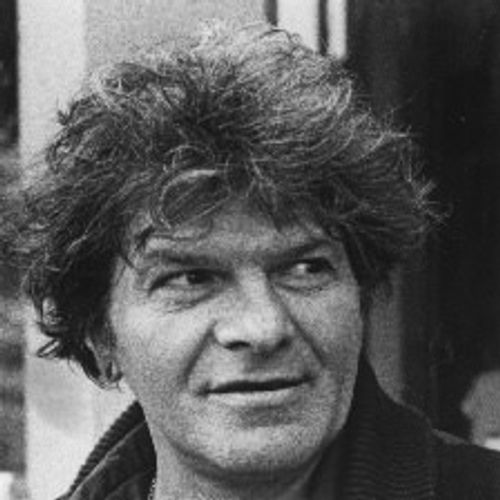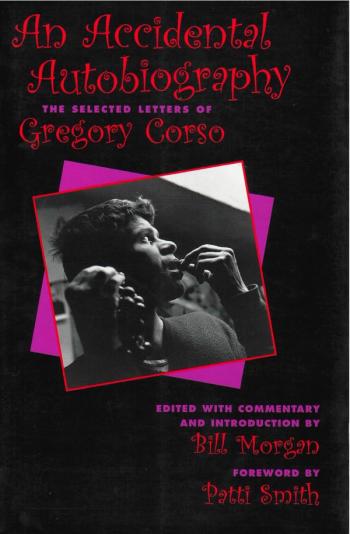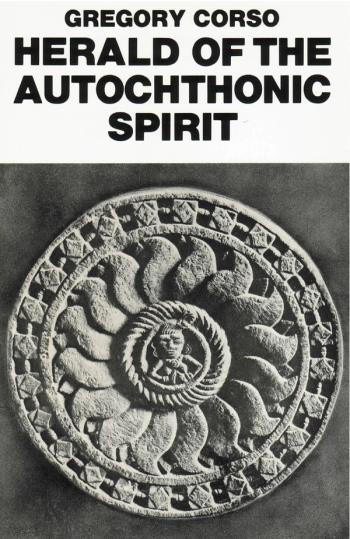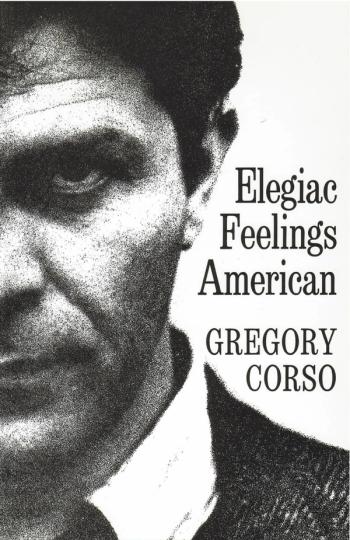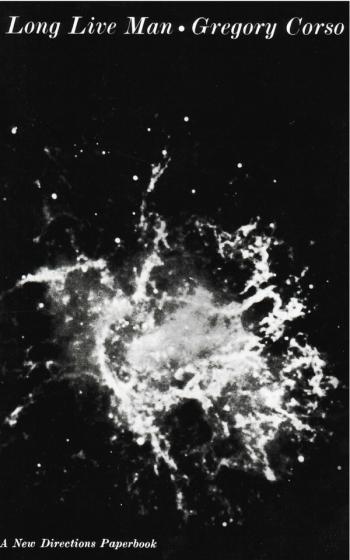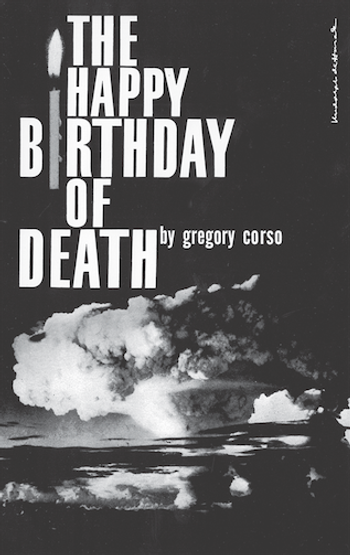Gregory Corso
Gregory Corso (1930–2001) was abandoned by his mother a month after his birth at St. Vincent’s Hospital in New York. Growing up in foster care and on the streets of Little Italy, Corso was a juvenile delinquent who spent time in Clinton Correctional Facility, in the cell recently vacated by gangster “Lucky” Luciano. An aspiring poet, Corso was taken under the wing of Jack Kerouac and Allen Ginsberg, and became the youngest member of the Beat Generation’s inner circle, with whom he lived and work in the Beat Hotel, a lodging house in Paris, during the late fifties. There he created one of his signature works, “Bomb”, a poem composed of typewritten strips of paper arranged in the shape of a mushroom cloud. Late in life, Corso became reunited with his mother and maintained a close relationship with her until his death.
